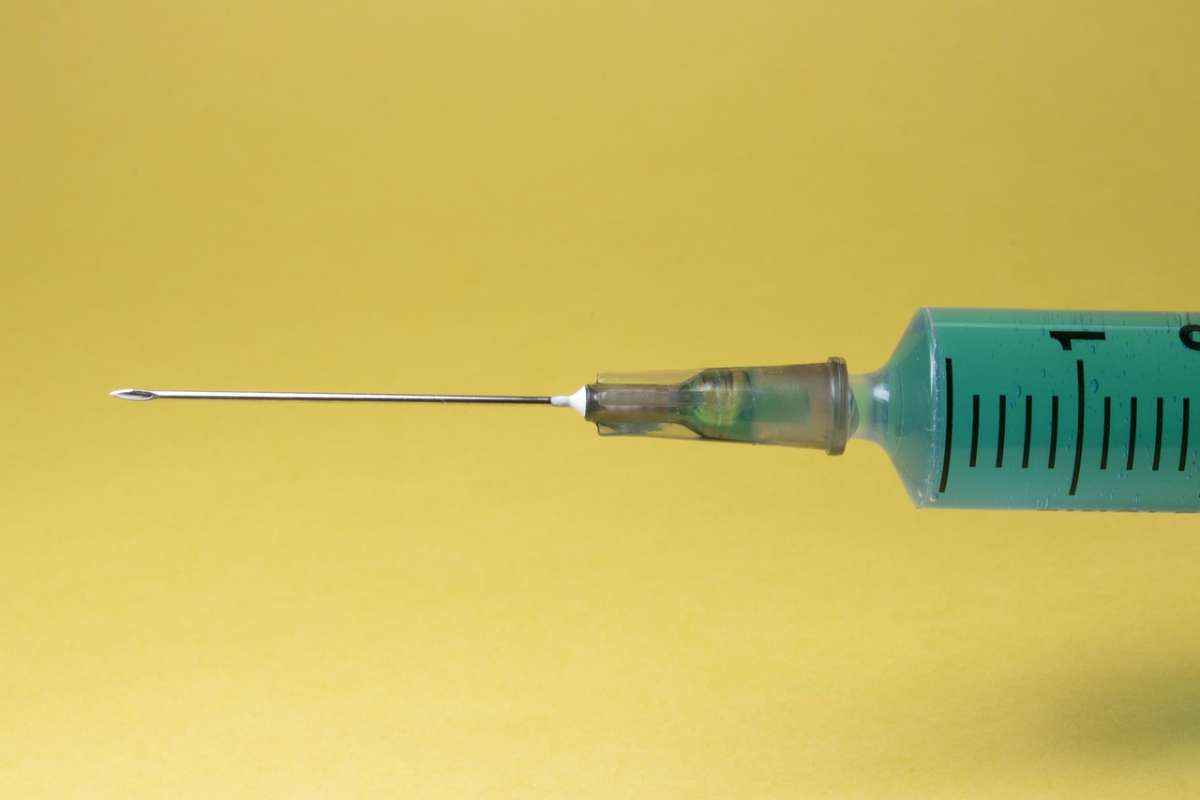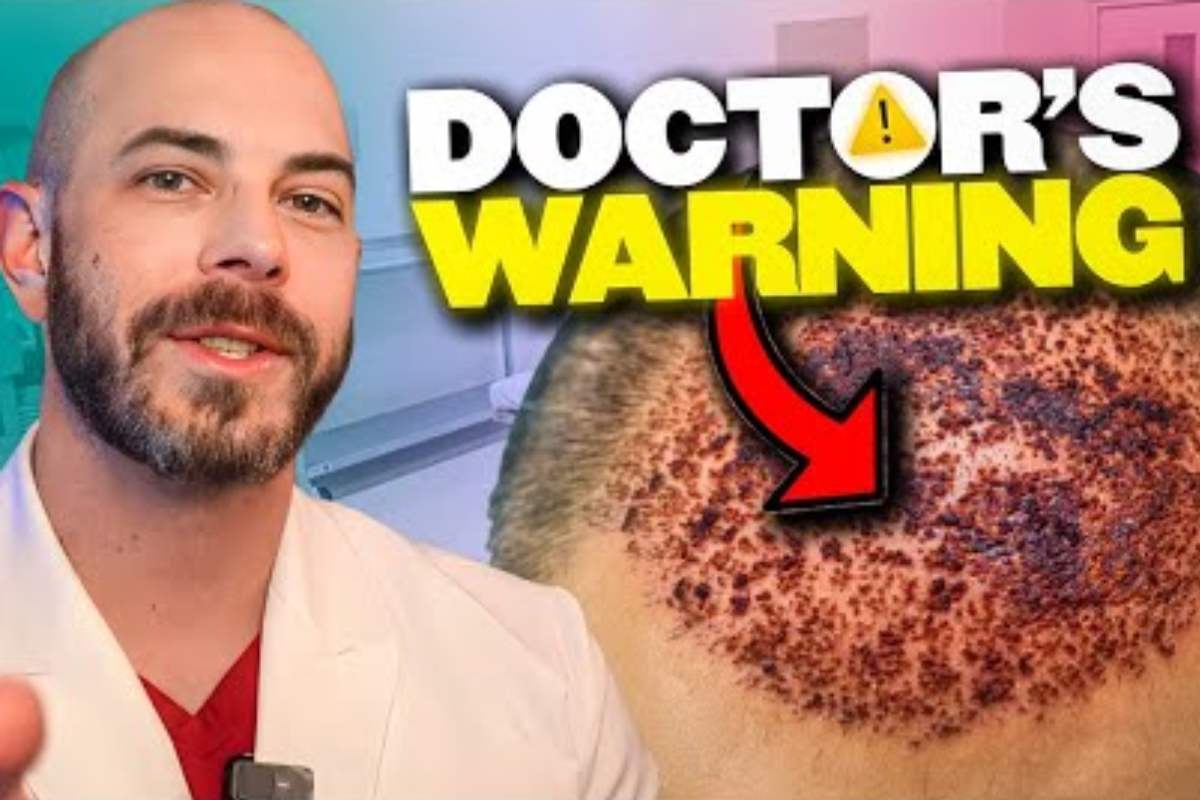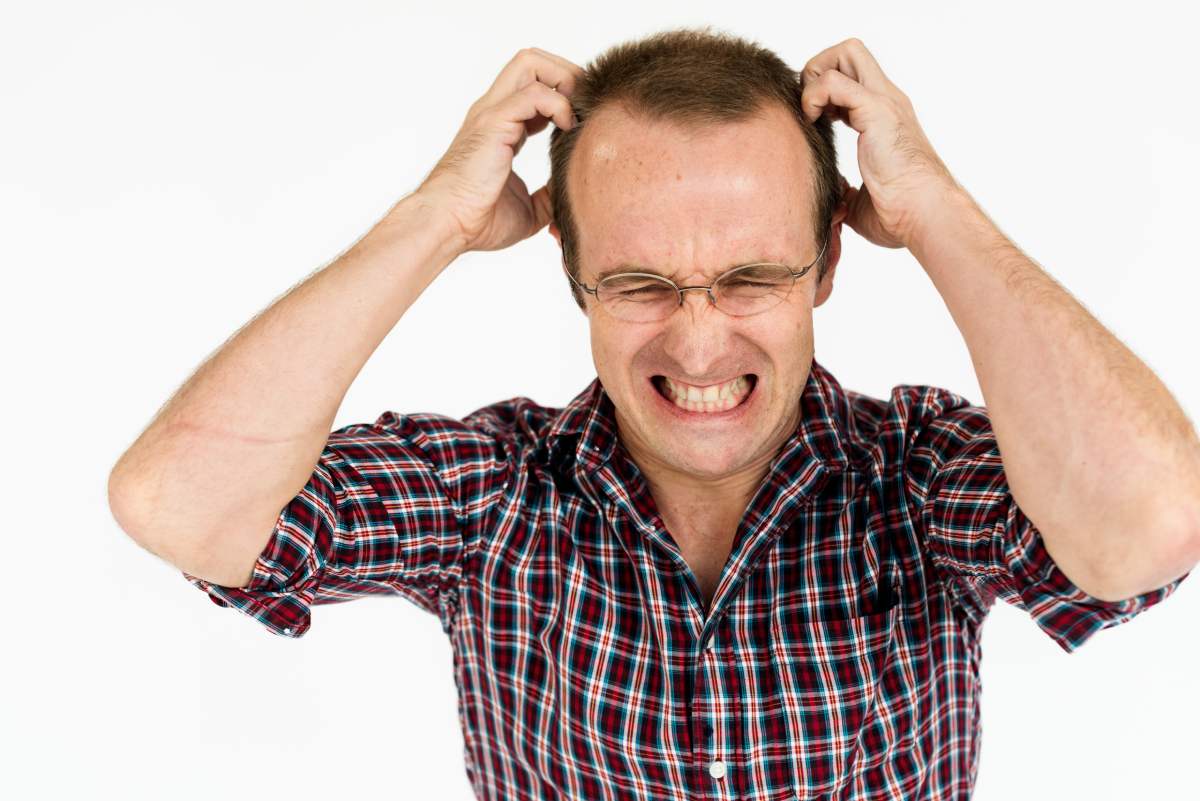Throughout their lifetime, more than 80% of men will experience some form of hair loss; it’s an inevitable part of life for most people. And while most men understand that they will, at some point, lose their hair, or experience thinning, most do not understand what causes hair loss.
Even as young adults, men can begin to notice their hair starting to thin for apparently no reason… but there’s always a reason. This reason can range from medication you may be taking, change in diet, genetics, or medical illness.
Let’s take a look at some of the most common reasons for hair loss in men, and what you can do to restore your hair to its natural beauty.
Male Hair Loss – Most Common Causes
1. Genetics
Androgenetic Alopecia is by far the most common type of hair loss that men deal with in their lives. Otherwise known as male pattern baldness, this type of hair loss affects more than 50 million men in the United States. Unfortunately, this type of hair loss isn’t naturally reversible and will continue to affect you as you age.
This type of male hair loss typically starts around the temples and works its way back (or crown) but often involved the entire top of the scalp, sometimes leaving the classic “horseshoe” patch of hair along the sides and back of the head.
In the case of Androgenetic alopecia, there isn’t much that can be done in terms of reversing the process. There are some medicinal and laser therapies that can be used to slow or temporarily reverse the process, but in most cases of male pattern baldness the only way to truly “cure” or replace the lost hair is with a hair transplant procedure.
2. Stress
Going through a stressful life event, or dealing with constant stress in your life, can cause your body to react in ways you didn’t know possible. One of the ways it can manifest itself is through noticeable hair loss. But never fear, in the majority of cases this hair shedding, or thinning, is only temporary and will correct itself after a few months. Types of stress that are well known to cause hair loss, also known as telogen effluvium, are undergoing surgery/anesthesia, high fevers/severe illness (including Covd-19), dramatic weight loss/crash diets, divorce/loss of family member or other major emotional trauma.
Sometimes it’s hard to determine if stress is actually the cause of this type of hair loss because often it takes a few months after the stressful event occurred to actually notice the shedding of hair. And then, the realization of your hair falling out can also be stressful, which can create a vicious cycle over time. But rest assured that this type of hair loss is almost never permanent, you won’t go bald, and your hair will begin to come back on its own once you are able to manage your stress levels.
3. Medication
Illness itself can cause hair loss in some cases, but there are also some medications that may cause your hair to start thinning as well. Similar to stress related hair loss, this type of hair loss can be temporary and your hair will begin to grow back if you’ve able to stop using the medication that’s causing the issues.
Most people are aware that cancer treatments like chemotherapy usually cause exteme or near total hair loss in both males and females; known as Anagen Effluvium. There are other medications for more common ailments that can also cause hair loss but at a much milder and slower rate.
There are a number of prescription medications that list temporary hair loss as one of their possible side effects, but that doesn’t mean that taking these types of medications will always lead to this.
Steroids like testosterone and progesterone, acne medication like Accutane, blood pressure medications like metoprolol and lisinopril, as well as cholesterol-lowering medications like simvastatin and atorvastatin, can cause temporary hair loss, but keep in mind, this type of hair loss is temporary and will begin to regrow once these medications are paused.
If you’re on one of these medications permanently and are worried about hair loss, or are starting to experience hair loss, talk with your physician as there may be other options that you can take with less side effects.
4. Diet and Food Intake
Your hair requires certain vitamins and nutrients in order to stay healthy so a lack of certain vitamins in your system could cause your hair to become brittle and damaged, which in turn could cause it to fall out.
Iron, biotin, vitamin D, zinc and protein have all been shown to cause hair loss when low levels are detected. Thankfully by increasing your intake of these nutrients you can restore your hair back to health and reverse any signs of hair loss you may have noticed.
If you’ve recently changed your diet and have been noticing a change in your hair health, this may be a sign to supplement with a vitamin pill or alter your diet so you’re sure you’re including enough of the nutrients that your hair needs to thrive.
5. Inflammation in the Scalp
When your scalp becomes inflamed it can cause the follicles in your scalp to become clogged or damaged to the point where they are unable to grow new hair. If the inflammation gets so bad to the point where there is now scarring on the scalp, it could lead to irreversible damage if not caught in time.
Inflammation of the scalp can occur for a number of different reasons. Flaky scalp, Seborrheic dermatitis, allergic reaction to hair care products, and more. But the main thing you want to do is make sure you catch the issue before it gets to the point of scarring.
In most cases, once the cause of the inflammation is determined and a medical course of action is started, the hair will begin to grow back once the inflammation has subsided.
Hair loss can be a touchy subject among both men and women, but it’s important to understand the most common causes of hair loss and what types of hair loss are reversible and which ones aren’t.
If the hair loss is due to an underlying condition that has come on suddenly, then in most cases it can be reversed, however, if the hair loss is due to aging and genetics, the only way to restore the lost hair is going to be with a hair transplant procedure.
At the Limmer Hair Transplant Center in San Antonio, TX, we offer a variety of different options when it comes to hair loss and hair thinning. Contact us today to setup a consultation with our doctor and we can help determine the right course of action to help treat your hair loss.







